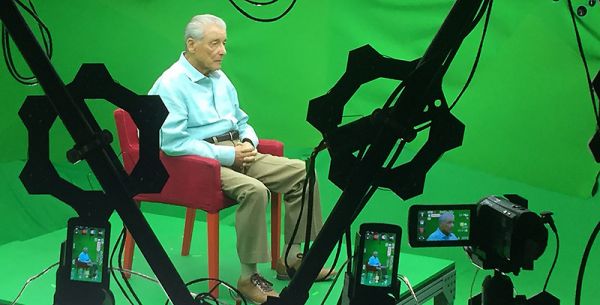
In this clip from her testimony, Jamalida Begum describes how Myanmar authorities murdered her interpreter and pursued her in retaliation for her speaking with UN representatives and the press about her plight.
In this clip from her testimony, Jamalida Begum describes how Myanmar authorities murdered her interpreter and pursued her in retaliation for her speaking with UN representatives and the press about her plight.
A public lecture by Samuel Kassow (Trinity College).
Sedda Antekelian and Manuk Avedikyan will talk about IWitness, an online education resource developed by USC Shoah Foundation, that provides access to eyewitness testimonies of the Armenian genocide and classroom activities for educators.
This is footage from Aaron Elster's testimony for the New Dimensions in Testimony project. He was one of the Institute's earliest interviewees. In this clip, Aaron Elster gives a message to future generations.

USC Shoah Foundation is saddened to learn of the passing of Aaron Elster, a Holocaust survivor whose steadfast refusal to counter hate with more hate will echo for years to come. He was 85.